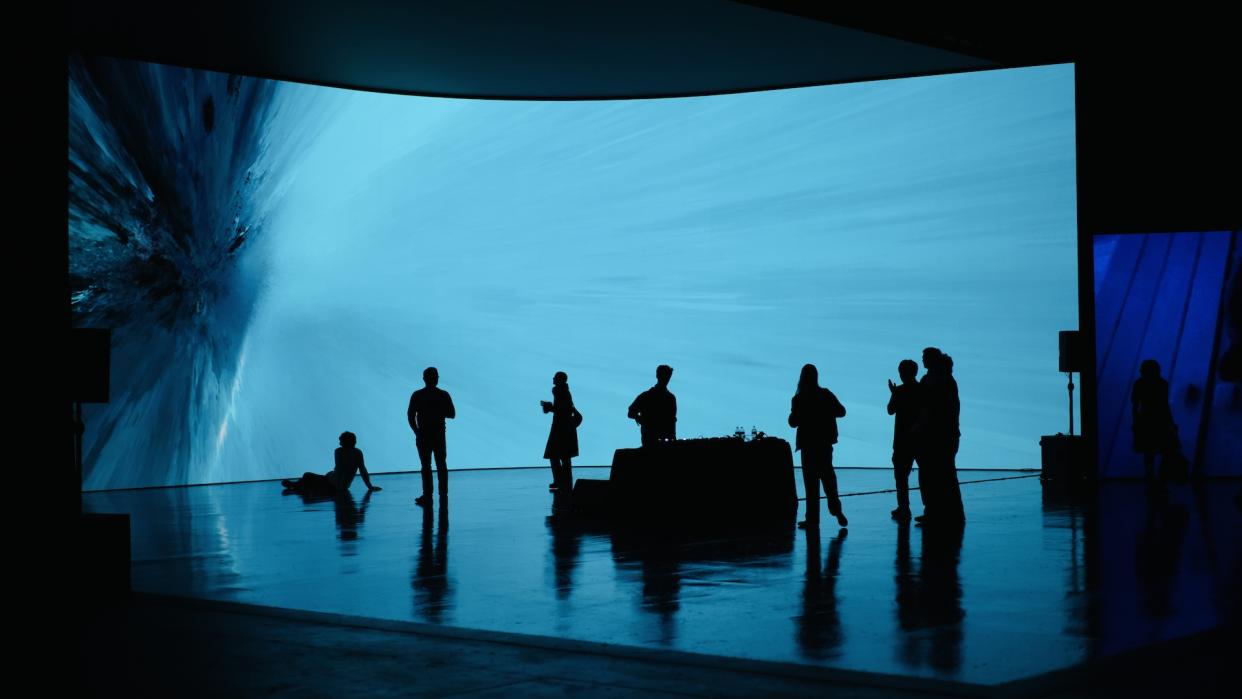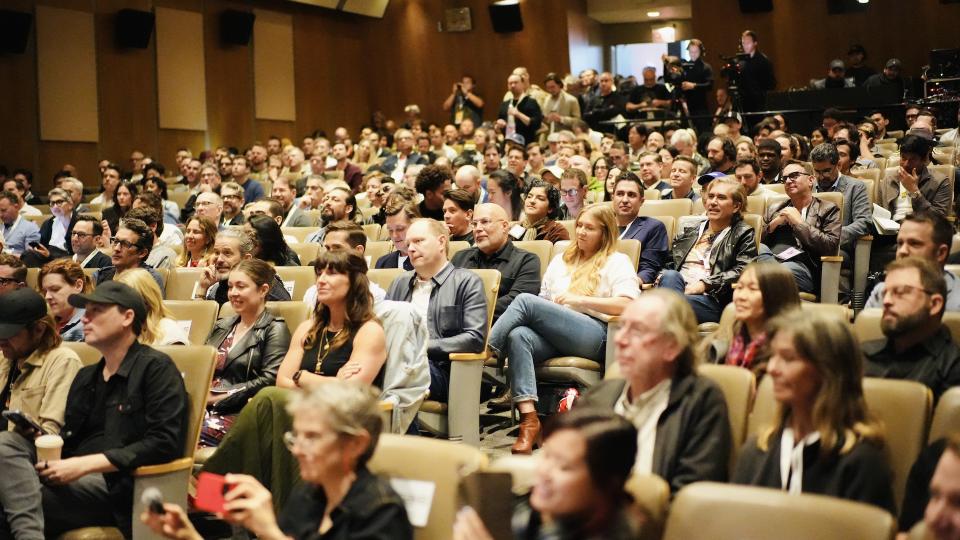Will AI Make Hollywood Production Cheaper? Don’t Count on It

Before digital tools allowed composers to simulate any instrument on a laptop, musical scores for TV were simple melodies performed by a handful of session musicians. The newer technology meant those musicians lost their jobs; so did the guy who transcribed the composer’s scores.
However: That doesn’t mean scores require fewer people, or became cheaper to produce.
More from IndieWire
'Industry' Season 3 First Look: Kit Harington Is a Holistic Green-Tech Guru Looking to Make Bank
StreamSaver: Buy Peacock and Apple TV+, Get Netflix Free (Basically)
Today, even the smallest TV shows employ full orchestras. Tech made things easier, but the cost to produce scores for film and TV has only increased. With greater possibilities, more advanced jobs replaced those that were lost.
That’s the analogy Matt Nix, showrunner for “Burn Notice” and the recent “True Lies,” used when describing the advent of artificial intelligence at the May 16 AI on the Lot summit at Los Angeles Center Studios. He rejected the idea that AI will become a pathway to low-cost filmmaking and TV production that uses fewer people — no matter how much studios might wish that were the case.
“In the arms race of Hollywood, studios are very excited about saving money and firing a bunch of people, but I think what they’re forgetting is that has literally never worked in the history of mankind,” Nix said on a panel moderated by IndieWire editor-in-chief Dana Harris-Bridson. “Not one time has a new technology come out and everyone said, ‘We’ll just try not to do anything new just to save money.'”
Nix made another analogy: machine guns. A single machine gun could fire as many bullets as dozens — or even hundreds — of men carrying rifles. However, that didn’t mean a machine gun replaced armies; it meant armies now carry machine guns and wars are more costly than ever.
AI, he believes, will enable Hollywood to do a whole lot more easily and faster, but the industry will continue investing to make the bigger and better next thing — much as FX-heavy superhero and fantasy shows only made production expensive.
“The arms race continues,” he said.

All metaphors aside, AI does have the potential to wipe out jobs and disrupt Hollywood’s workflow. During last summer’s WGA strike, writers demanded that AI-generated material can’t be handed to a writer for punching up or replace the act of writing altogether; actors on strike fought for protection and compensation when using digital replicas.
However, a keynote presentation by Renard Jenkins, president of the Society of Motion Picture and Television Engineers (SMPTE), pointed out that wholesale anxiety is misplaced. Speaking to AI on the Lot attendees, he challenged studio executives to consider just how much it would cost to integrate AI into a company or studio’s existing infrastructure — and at scale. It made the idea that AI will replace everyone and everything unrealistic, he argued.
“You are probably not going to release people out to the wild,” Jenkins said. “You’re going to learn how to retrain people, and then you’re probably going to have to throw more money at that them to retain them, because they are going to be in demand.”
He went a step further: It’s not the below-the-line artists that AI will replace, he said, but the CFOs and the modern-day executives. Give Jenkins 10 years of financial performance data, and data related to content output, and he could soon build an algorithm that will make Wall Street happier with its predictions and decisions than a C-suite human.

“Every part of the process will be affected, but don’t think about it in the sense of replacement,” he said. “Think about it in the sense of enhancement, and in the currency of time.”
Mark Hoffman, an executive producer on “Bull” and “The Umbrella Academy,” said there’s a very “hushed tone” around which writers and creators are actually experimenting with AI. The new labor contract requires both the writers and studios to ask permission before using AI, and requires signing forms limiting studio liability. There’s also inherent issues with title and copyright. As a result, Hoffman said, the blanket policy among studios has simply been “it’s not allowed.”
Nix added, “No one in Hollywood writers’ rooms is going to use AI because it’s wrong and evil. [But] a lot of people are going to come back from the bathroom with very good ideas.”
Hoffman believes that AI will reinvent the process and the act of screenwriting — not unlike the way talkies reinvented how people wrote movies.
“If this is a marathon, the first mile and the last mile are the hardest,” he said. “First, you have to come up with an inspiration. What are you going to write about? You can’t just tell AI, ‘Give me a movie.’ It’s got to come from somewhere. Getting to the end is really hard. Fine-tuning the script I already have something that’s pretty good, but I need something that’s great and get your attention to watch. So you’re still going to need people for that last mile.”
It’s true that AI is unbeatable when it comes to creating low-cost scripts at speed, but Nix argued that isn’t really the problem. “It’s always a pattern that goes, ‘AI is utterly useless garbage that’s going to take all of our jobs,'” he said. “You kind of have to choose one or the other. Guys, if shitty scripts were that valuable, we’d all be sitting on a gold mine.”
Best of IndieWire
The Best LGBTQ Movies and TV Shows Streaming on Netflix Right Now
Guillermo del Toro's Favorite Movies: 54 Films the Director Wants You to See
Nicolas Winding Refn's Favorite Films: 37 Movies the Director Wants You to See
Sign up for Indiewire's Newsletter. For the latest news, follow us on Facebook, Twitter, and Instagram.
